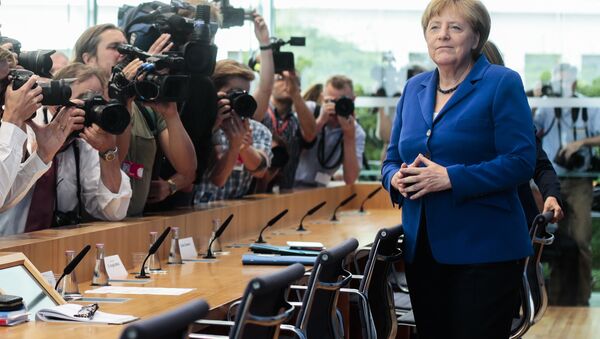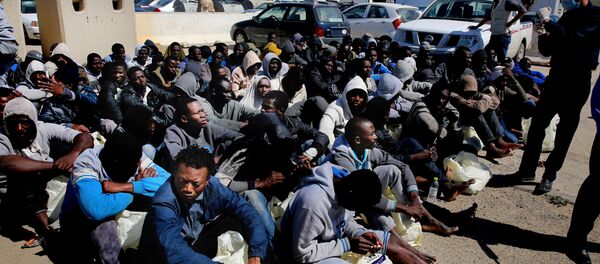Last month Merkel said that the EU should reach agreements with North African countries like Egypt and Tunisia in order to control migration across the Mediterranean.
"It (the EU-Turkey agreement) says clearly: I have no chance of migrating illegally. These are mechanisms which we also need to introduce regarding other countries, for example Egypt or Tunisia," Merkel announced.
However, Der Spiegel reports that EU Commissioner for Neighborhood Policy and Enlargement Negotiations Johannes Hahn has advised the Chancellor against making "counterproductive" comparisons.
"The EU pays Turkey three billion euros ($3.4 billion), which includes payment for the schooling and housing of refugees. In Brussels there is concern that after Merkel's announcement countries like Egypt will also expect similar sums of money," Der Spiegel reported.
Brussels politicians believe the situation in Turkey is not comparable to the one in North Africa, since Turkey is home to 3.1 million refugees, 2.7 million of whom have fled neighboring Syria. Countries like Egypt and Tunisia, in contrast, are transit countries for a broad mix of migrants from elsewhere in Africa, including impoverished areas not currently engaged in war, such as Eritrea.
The warning was relayed via Merkel's aide Peter Altmeier, Chief of the German Chancellery and Federal Minister for Special Affairs. Merkel is set to visit several African countries next week, including Mali, Niger and Ethiopia, and intends to pursue more active German engagement with the region, including more development aid.
A new approach to Africa is a "strategically highly important issue," the German Chancellor told German newspaper Die Zeit on Wednesday.
"We have to say realistically that the welfare of Africa is also in Germany's interest."
While pleased with the EU-Turkey deal, Merkel was critical of the decision to close the Balkan migration route this year. Between January and August 122,078 illegal border crossings were detected on this route, the EU border agency Frontex reported.
"If you ask me whether closing the Balkan route has solved the problem, I would say clearly not," Merkel told Die Zeit.
"In the weeks before the EU-Turkey agreement came into force, it (closing the borders) led to less refugees arriving in Germany – but there were 45,000 in Greece," Merkel pointed out.
While the EU Commission and the German Chancellor disagree on the best way to tackle the issue, EU parliament deputies from the European People's Party (EPP) have proposed making a deal with Libya similar to that which Spain has made with Morocco.
"To stop the uncontrollable flow of refugees into European countries, we have to change our migration policy. One possibility is to close direct access to EU countries, and send the refugees to a third country," a source in the EPP told the Russian newspaper Izvestiya last month.
"These countries should be those which these people are coming from. It is crucial to restore peace there. The Spanish parliament has already approved returning refugees who arrive there back to Morocco. We need to establish a similar mechanism with (the other) North African countries," the MEP said.




